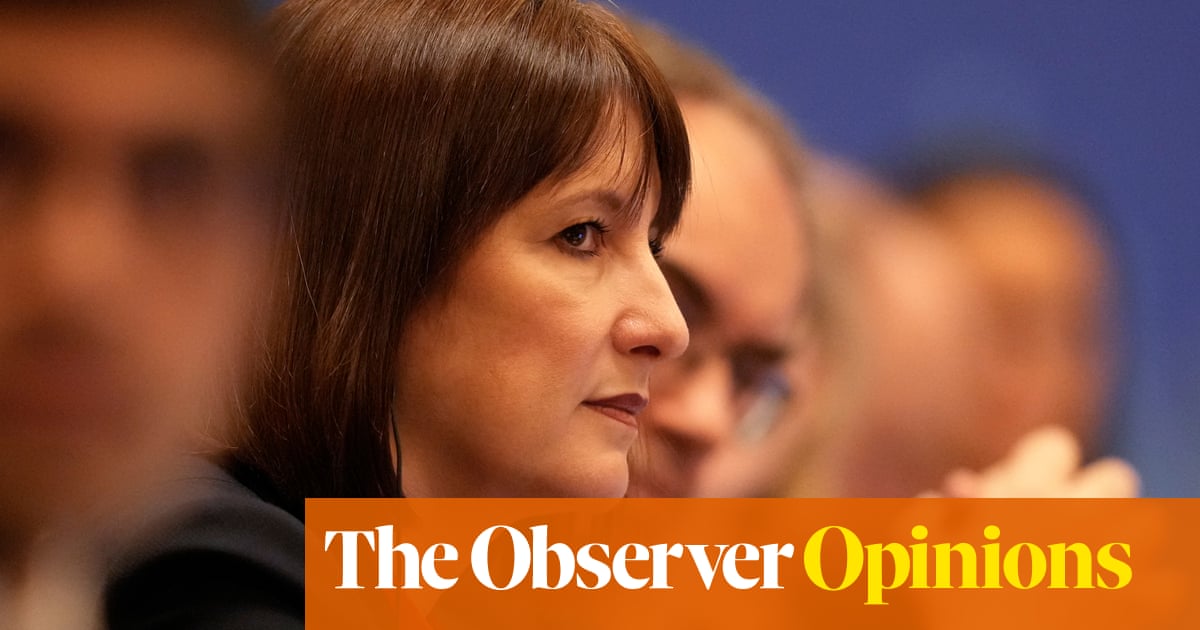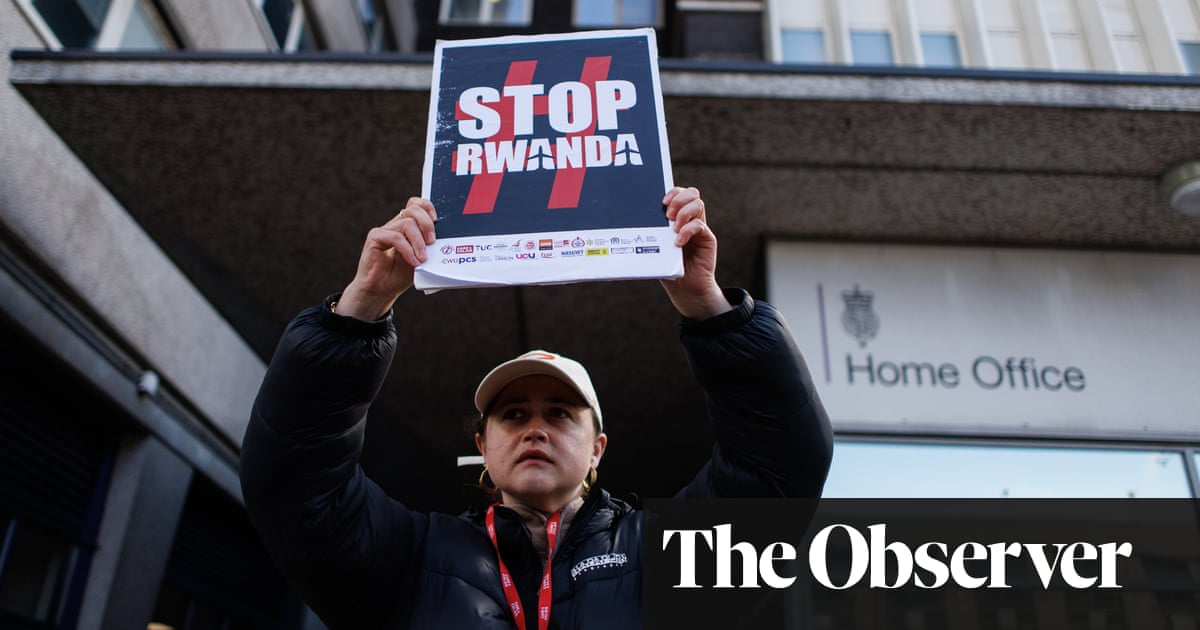All over the country, the lights are going out. The level of need for adult and children’s care is constantly increasing. People are still suffering the dire human effects of the pandemic. Thanks to the long years when Conservative politicians mercilessly cut the money that went from Whitehall to councils, the fear of municipal bankruptcy now stalks scores of places. And after years of cuts, in the face of other rising costs – including funding special needs education and providing temporary accommodation for those who are homeless – the local politicians who have to somehow find a way through all this face an impossible question: how else can they reduce their spending? The answers involve vital services. But as winter bites and the nights draw in, one set of savings comes with an awful symbolism.
Our streetlamps are being dimmed, switched off and left broken: over the past 15 years, the majority of councils are reckoned to have taken such decisions. And, of course, this great switch-off is bound up with all the other ongoing local cuts: to social work, road maintenance, transport for disabled people, domestic abuse services, youth clubs, libraries, leisure centres, bus subsidies, parks, and more. For millions of people, the continued hacking down of the most basic amenities and infrastructure seals a sense of deep neglect, and the feeling that politicians at the top choose to look away. When Rachel Reeves gave her budget speech a few weeks ago, she repeated a stock Labour line: “I said there would be no return to austerity; that is the choice I have made today.” The truth is that local austerity is not just grinding on, but getting worse.
We are now well beyond the phase of this story that included a handful of broke local authorities in England – perhaps most notably, Birmingham city council – whose predicament could be blamed on mismanagement. The crisis is spreading fast: among the places and areas now said to fear bankruptcy are Bristol, Dudley, Cheshire East, Somerset and Hampshire. Though stories elsewhere in the UK are slightly complicated by devolution, local authorities in Scotland, Wales and Northern Ireland are also in the midst of grave difficulties. The same thing is happening everywhere: the decline and collapse of a layer of government that is central to the way we all live.
If you want a sense of the seemingly unlikely places now on the brink, consider Shropshire, that expanse of sparsely populated land and venerable towns – Shrewsbury, Whitchurch, Oswestry, Ludlow – that sits on England’s mid-western edge. Last year, its county council cut £40m from its spending; this year, it is in the midst of £62.5m of savings, which works out at £191 for every resident. Research by the BBC suggests this is the highest figure of any local authority in the country. And the pain looks set to continue.
Shropshire’s council leader is Lezley Picton, who recently said that her county was “unbelievably close” to effective insolvency. She is a Conservative, but in the context of the disaster she faces her party affiliation does not seem all that relevant. Since 2011, £400m has been taken out of the council’s budget. Of every five pounds it now spends, she reckons that four go on social care. “Of the remaining quid,” she told me last week, “50 pence is spent on our waste contract, and everything else we do – including other statutory services – comes out of that last 50p.”
Never mind air pollution and gridlock: the park and ride system in Shrewsbury, she said, may have to go. The only way to save libraries is to hand them over to volunteers. Bust streetlights are going to go unrepaired. “There is nothing that isn’t under threat,” she said. “Everything we do is being looked at.”
One aspect of Shropshire’s finances is shocking: the fact that the number of children in council care has increased by 85% since the pandemic. “There is a view from the outside world that Shropshire is leafy and green,” Picton told me, “but we’ve also got significant pockets of poverty. We are suffering, in the same way as many other councils are, from an increase of drug and alcohol use.” She went on: “There were at least two years where we didn’t have eyes on children. We just didn’t have that constant focus that our schools bring.”
There was then a pause. “This council has been controlled by Conservatives since 2009. But there was a Conservative government issue. They stopped investing in what I personally believe is a really important thing, which is that early help: Sure Start, and that whole process.” In the absence of that kind of intervention, family crises pile up, at a huge cost. Meanwhile, lives are made yet more precarious by her county’s dependence on low-wage employment.
The reality of Whitehall’s next local government settlement will become clear in December. In the budget, Reeves promised an extra £1.3bn to councils, £600m of which is dedicated to social care. Like the extra money announced over the weekend for local buses, that helps, but not nearly enough. The Local Government Association reckons that in 2025-26, local leaders in England will face a £2.3bn gap (or, if you prefer, “black hole”), which will rise to £3.9bn in 2026-27. Unsurprisingly, Picton says that whatever emergency funds reach her county will barely touch the sides.
There are obvious political elements of this national crisis. The worsening state of the places where we live partly explains the sense of nothing having changed in 15 years, and a public mood still brimming with resentment. Those feelings are now being expressed in an obvious question: given the inevitability of council tax rises, are people really meant to put up with paying more and more for less and less? In response, the government seems to have plans to reorganise some elements of English local government, and to allow councils to set their budgets over long periods – but in the absence of answers to a crisis that is worsening by the day, that looks dangerously like an offer to rearrange the proverbial deckchairs.
What no one talks about is what all this decay means for the economy. How can you even begin to revive a country in this condition? Leaving aside more human considerations, do the people in charge seriously think we will leap to the top of the relevant international league tables amid potholed roads, councils consumed by unending crisis management and lives in constant upheaval?
By an accident of timing, I immersed myself in Shropshire’s predicament just as Reeves was giving last week’s Mansion House speech to the city of London, bigging up the wonders of the capital’s financial services sector and suggesting that it should be once again set free to lead the charge towards growth. But that model was disgraced in 2008, and it led us to where we are, with one or two blinding economic lights illuminating London and a few other big cities, while the rest of us – often literally – live in the dark. That approach has long since failed: the only route to something better lies in finally giving places the means to manage something more than either failure or survival. Is that still too much to ask?
-
John Harris is a Guardian columnist

.png) 2 months ago
18
2 months ago
18













































